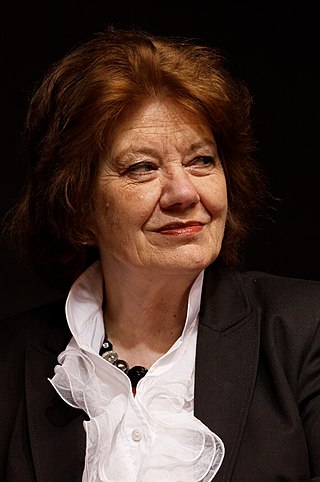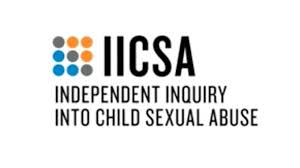
The Parker–Hulme murder case was the murder of Honorah Mary Rieper in Christchurch, New Zealand, on 22 June 1954. The perpetrators were Rieper's teenage daughter Pauline Parker and her friend Juliet Hulme. Parker was 16 at the time, while Hulme was 15.

Juvenile delinquency, also known as juvenile offending, is the act of participating in unlawful behavior as a minor or individual younger than the statutory age of majority. These acts would be considered crimes if the individuals committing them were older. The term delinquent usually refers to juvenile delinquency, and is also generalised to refer to a young person who behaves an unacceptable way.
In 2004, seven men living on Pitcairn Island faced 55 charges relating to sexual offences against children and young adults. The accused represented one-third of the island's male population and included Steve Christian, the mayor. On 24 October, all but one of the defendants were found guilty on at least some of the charges. Another six men living abroad, including Shawn Christian, who later served as mayor of Pitcairn, were tried on 41 charges in a separate trial in Auckland, New Zealand, in 2005.

Oswald Chettle Mazengarb, known as Ossie Mazengarb, was a New Zealand barrister.
Winlaton Youth Training Centre was a Government owned and run female youth correctional facility located on 18 acres (73,000 m2) at 186 Springvale Road Nunawading, Victoria, Australia. The facility was designed to accommodate 14- to 18-year-old wards of the state. It opened in 1956 as the Winlaton Juvenile School, and closed in 1993 as the Nunawading Youth Residential Facility. A housing estate now occupies the site.

Peter Hugh McGregor Ellis was a New Zealand childcare worker who was wrongfully convicted of child sexual abuse. He was at the centre of one of the country's most enduring judicial controversies, after being found guilty in June 1993 in the High Court on 16 counts of sexual offences involving children in his care at the Christchurch Civic Creche and sentenced to 10 years' imprisonment. He maintained his innocence until his death 26 years later and was supported by many New Zealanders in his attempts to overturn his convictions, although others believed he was guilty. Concerns about the reliability of the convictions centred on far-fetched stories told by many of the children and the interview techniques used to obtain their testimony.

Dilworth School, often referred to simply as Dilworth, is an independent full boarding school for boys in Auckland, New Zealand. It is the largest full boarding school in both the country and Australasia. Owned and operated by a charitable trust, boys selected to attend do so on scholarships covering education and boarding costs.
The sexuality of US adolescents includes their feelings, behaviors and development, and the place adolescent sexuality has in American society, including the response of the government, educators, parents, and other interested groups.
Scouting sex abuse cases are situations where youth involved in Scouting programs have been sexually abused by someone who is also involved in the Scouting program. In some instances, formal charges have been laid, resulting in specific legal cases.

The Crimes Amendment Act 2007 is an amendment to New Zealand's Crimes Act 1961 which removed the legal defence of "reasonable force" for parents prosecuted for assault on their children.
Censorship in New Zealand has been present since around 1850 and is currently managed by the Classification Office under the Films, Videos, and Publications Classification Act 1993.
Catholic sexual abuse cases in Australia, like Catholic Church sexual abuse cases elsewhere, have involved convictions, trials and ongoing investigations into allegations of sex crimes committed by Catholic priests, members of religious orders and other personnel which have come to light in recent decades, along with the growing awareness of sexual abuse within other religious and secular institutions.

Operation Yewtree was a British police investigation into sexual abuse allegations, predominantly the abuse of children, against the English media personality Jimmy Savile and others. The investigation, led by the Metropolitan Police (Met), started in October 2012. After a period of assessment, it became a full criminal investigation, involving inquiries into living people, notably other celebrities, as well as Savile, who had died the previous year.

From the late 1980s until 2013, group-based child sexual exploitation affected an estimated 1,400 girls, commonly from care home backgrounds, in the town of Rotherham, South Yorkshire, England. Between 1997 and 2013, girls were abused by "grooming gangs" of predominantly British-Pakistani men. Researcher Angie Heal, who was hired by local officials and warned them about child exploitation occurring between 2002 and 2007, has since described it as the "biggest child protection scandal in UK history".
Child sexual abuse in the United Kingdom includes the proliferation of indecent images, online exploitation, transnational abuse, and contact abuse. Efforts to prevent child sexual abuse include providing information to children and parents, and disrupting abusive situations. Perpetrators may act alone or as part of a group or street gang, and may either exploit vulnerabilities in children and young people or have long-standing sexual attraction to children. Underreporting of child sexual abuse and low conviction rates remain barriers to justice, among other factors. In the UK, high profile media coverage of child sexual abuse has often focused on cases of institutional and celebrity abuse, as well as offences committed by groups, also known informally as grooming gangs.

Not in Front of the Children: "Indecency," Censorship, and the Innocence of Youth is a non-fiction book by attorney and civil libertarian, Marjorie Heins about freedom of speech and the relationship between censorship and the "think of the children" argument. The book presents a chronological history of censorship from Ancient Greece, Ancient Rome and the Middle Ages to the present. It discusses notable censored works, including Ulysses by James Joyce, Lady Chatterley's Lover by D. H. Lawrence and the seven dirty words monologue by comedian George Carlin. Heins discusses censorship aimed at youth in the United States through legislation including the Children's Internet Protection Act and the Communications Decency Act.

The Independent Inquiry into Child Sexual Abuse (IICSA) in England and Wales was an inquiry examining how the country's institutions handled their duty of care to protect children from sexual abuse. It was announced by the British Home Secretary, Theresa May, on 7 July 2014. It published its 19th and final report on 20 October 2022.

Dame Lowell Patria Goddard, is a former New Zealand High Court judge, from 1995 to 2015. She is thought to be the first person of Māori ancestry to have been appointed to the High Court. In 1988, she was one of the first two women to be appointed Queen's Counsel in New Zealand and in 1989 became the first woman to hold a Crown warrant. In 1992, she became Deputy Solicitor-General for New Zealand. Between 2007 and 2012 she chaired New Zealand's Independent Police Conduct Authority (IPCA). In 2010 she was elected as an independent expert to the United Nations Subcommittee on the Prevention of Torture (SPT) and served in that capacity until 2016. From February 2015 until August 2016, she chaired the Independent Inquiry into Child Sexual Abuse in England and Wales.
Several allegations of child sexual abuse have been made against clergy, members of religious orders and lay members of the Anglican Communion for events dating as far back as the 1960s. In many cases, these allegations have resulted in investigations, trials, and convictions.

Josette Frank was an American children's literature expert and educational consultant. Frank spent most of her adult life working for the Child Study Association of America (CSAA), a leading authority on child development from the 1920s to the 1960s. Frank was engaged as the CSAA's child reading expert and published a parental literary guide titled What Books For Children? in 1937, with a new edition in 1941. Due to her progressive views about parental supervision of children's reading, Frank became one of the significant pro-comics voices during the American anti-comics movement of the 1950s, for which she received praise and criticism.













